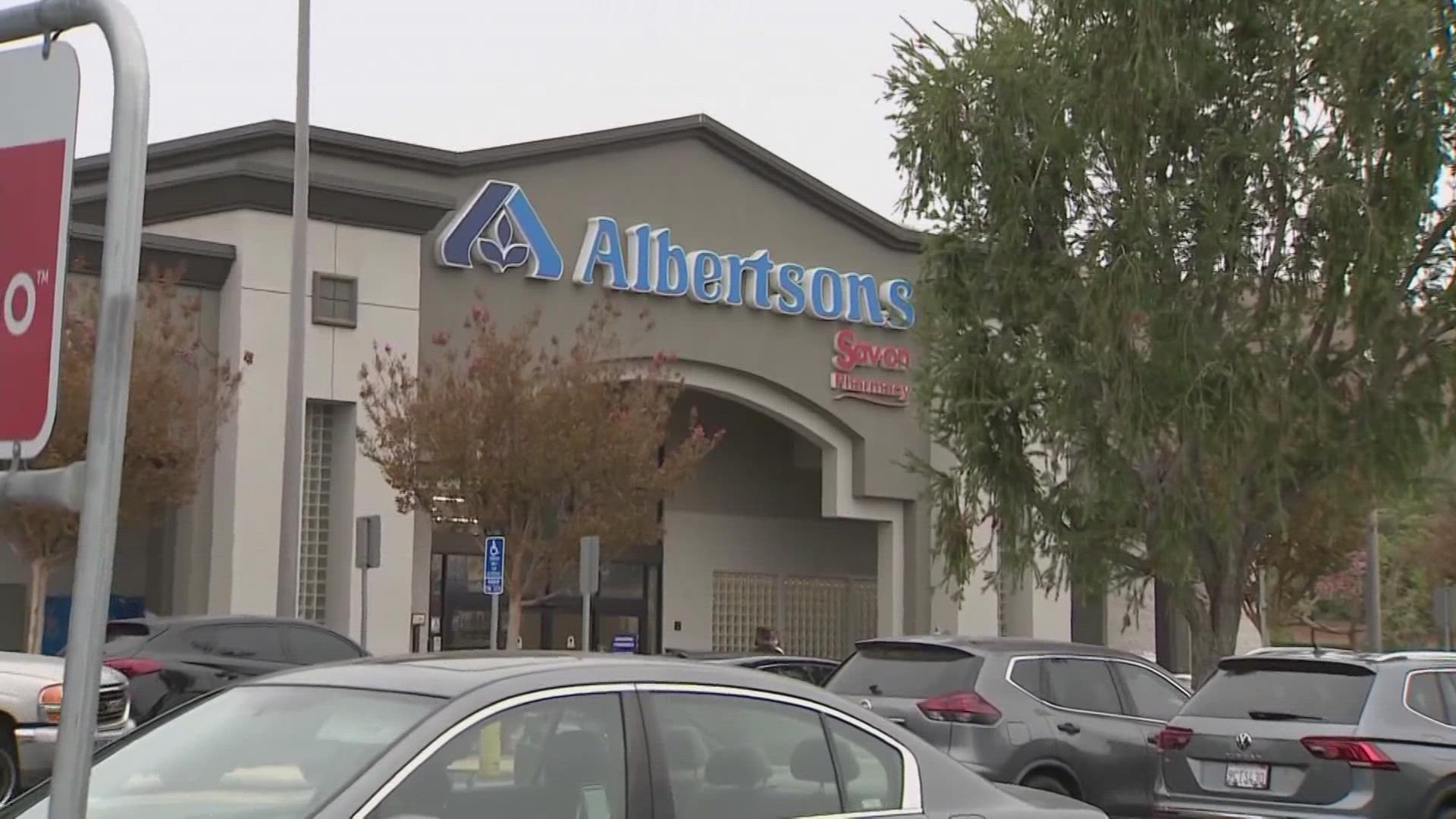DALLAS — On Tuesday, the Federal Trade Commission asked for more information from Albertson's and Kroger as it considers whether or not to approve the merging of the two supermarket giants.
The companies announced the plan in October.
"It's a blockbuster," SMU Cox School of Business Economics Professor Michael Davis said. "It's a very big deal. Remember, Kroger and Albertson's aren’t just competing against each other. They’re competing against Walmart and Amazon, so they’re competing for scale.”
While the move would make the grocers more competitive against both mega retailers, there has been a wave of concern from labor unions, wholesalers and consumers about the impact of merging two of the nation's largest supermarket companies.
"They're worried that their prices are going to get higher. Inflation has already driven prices higher," Dr. Edward Rincon, a market analyst who's studied DFW supermarkets, said. "They're also worried they would have more limited choices available than the did before."
Rincon said that is especially true in communities of color, where grocery stores tailor their offerings for the neighborhoods they serve.
The companies operate a combined nearly 5,000 stores across the country. In DFW, there are nearly 200 Kroger, Albertson's, Market Street and Tom Thumb stores.
Davis said if the merger is approved, there will be federal requirements the company will have to follow.
"The Biden Administration has promised to be more aggressive in administering the anti-trust laws so they’re going to look at this thing very carefully," Davis said.
He said one of those requirements will be closing stores in areas where there are a high concentration owned by the company, which he said could create the opportunity for another company to buy them.
While many have expressed concerns about what that could mean for communities already lacking access to grocery stores, Davis said those communities likely wouldn't see their stores closed.
"The underserved communities probably are not going to be the ones where the Krogers or Albertson's have to close because where you’re going to see store closings is where you’ve got an Albertson's within a few blocks of a Kroger," Davis said.
Davis said the deal would likely place the greatest burden on wholesalers, who have already been battling pandemic conditions and supply chain issues.
"The meat packers and the produce wholesalers," Davis said. "They’re going to be dealing with a much bigger, more powerful company."
CEOs of both Albertson's and Kroger have said the new, combined company would invest in keeping prices low, supporting employees and expanding access to fresh, affordable food.
In a statement, Kroger said its working cooperatively with the FTC following its request. Despite saying the request extends the wait time, Kroger's statement said the company expects the merger to be complete by early 2024.

